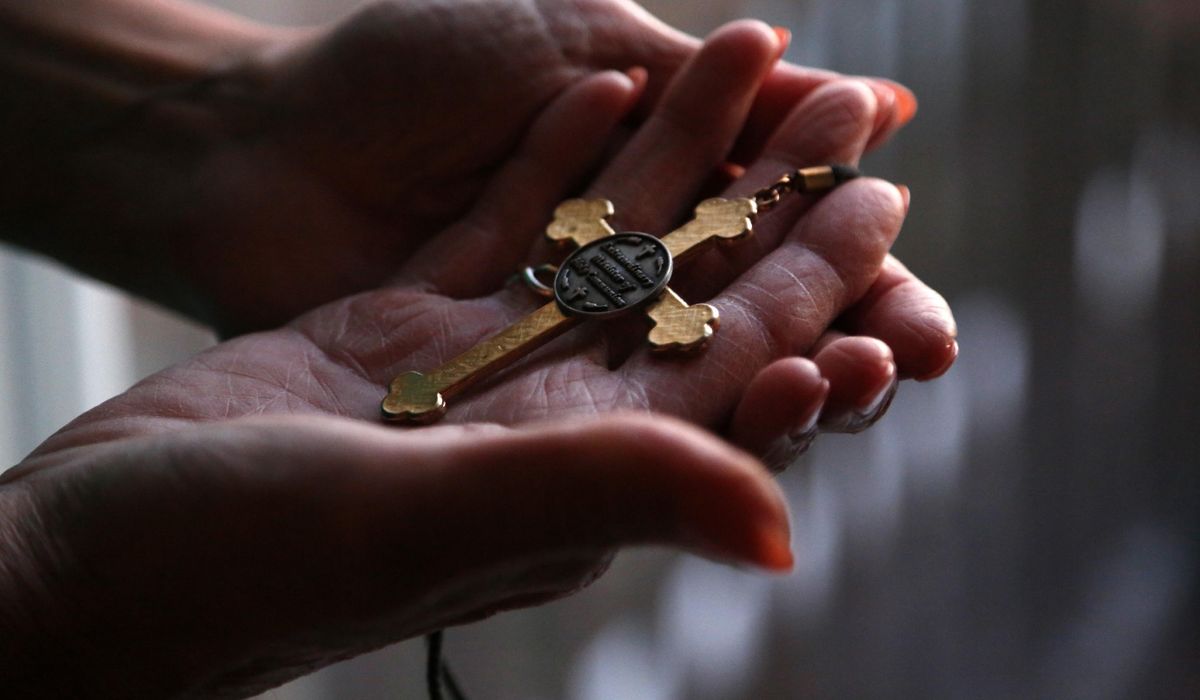


The Biden administration is backing down from trying to force Catholic health care providers to get into the gender-transition business.
The Justice Department this week let the deadline pass to file an appeal before the Supreme Court in Sisters of Mercy v. Becerra, marking the second time the administration has declined to defend the Affordable Care Act’s so-called “transgender mandate.”
The practical effect of the decision: Catholic medical professionals and organizations in the church’s extensive U.S. health care network would not be required to perform gender-transition surgeries or provide medical insurance coverage for such procedures to their employees.
Becket Law, which represented a coalition of Catholic hospitals, nuns and a Catholic university, cheered the department’s decision to drop the legal battle after the Eighth Circuit Court of Appeals upheld in December a temporary block on the mandate.
“After multiple defeats in court, the federal government has thrown in the towel on its controversial, medically unsupported transgender mandate,” said Luke Goodrich, Becket vice president and senior counsel. “Doctors take a solemn oath to ‘do no harm,’ and they can’t keep that oath if the federal government is forcing them to perform harmful, irreversible procedures against their conscience and medical expertise.”
The Sisters of Mercy coalition sued in 2016 after “the federal government reinterpreted the Affordable Care Act to require doctors and hospitals across the country to perform controversial gender-transition procedures, including on children, even when doing so would violate doctors’ consciences,” Becket said.
This was the second legal win in less than a year for Catholic health care providers who have objected to the mandate.
In August, the Fifth Circuit Court of Appeals upheld a lower court’s permanent injunction on behalf of the Franciscan Alliance, a Catholic health care network with nearly 19,000 providers. The Biden administration declined to bring an appeal before the Supreme Court.
“These religious doctors and hospitals provide vital care to patients in need, including millions of dollars in free and low-cost care to the elderly, poor, and underserved,” said Mr. Goodrich. “This is a win for patients, conscience and common sense.”
The Justice Department did not comment publicly on the decision, but the department has filed “statements of interest” against laws in Arkansas and Kentucky that barred providing gender-transition drugs and performing such surgeries for minor children. The conservative majority on the Supreme Court has also shown itself to be sympathetic to religious freedom arguments in other cases that have come before the high court in recent months.
‘Critical protections’
Supporters of the mandate say patients should not lose their rights to legal medical procedures because of the faith beliefs of the hospital or doctor’s practice where they are treated. The American Civil Liberties Union last year blasted the Franciscan Alliance lawsuit, saying it would “undermine critical protections against discrimination in health care.”
“No one — whether they’re male or female, transgender or not — should fear being turned away at the hospital door because of who they are,” said Louise Melling, ACLU deputy legal director. “Religious liberty does not mean the right to discriminate or harm others.”
Abortion supporters claimed a legal victory this week when a federal judge in Little Rock struck down the state’s new law barring transgender treatments for children and teenagers, ruling the statute discriminated against transgender patients and violated the constitutional rights of doctors who agreed to perform the practices. It was one of the first legal tests of a statute that lawmakers in a number of conservative states have proposed and an appeal of the ruling is expected.
Ethics and Religious Liberty Commission President Brent Leatherwood hailed the Biden administration’s decision not to appeal the transgender mandate as a “significant victory in safeguarding the rights of medical professionals to operate in a manner consistent with their deepest held beliefs.”
“This is an important development we should take note of because it not only represents a win for conscience rights but also furthers efforts to shield vulnerable individuals who should never become pawns in the sexual revolution,” he said in a statement.
The deadline to bring an appeal before the Supreme Court was Tuesday.
The decision comes on the heels of a vote by the U.S. Catholic bishops late last week to rewrite their official guidance to Catholic health care institutions on transgender surgeries and hormone treatments, a move widely seen as a prelude to establishing a clear bar on such treatments for transgender people at Catholic hospitals and church-affiliated medical centers.
The bishops in March approved a new “doctrinal note” that held that Catholic health care services “must not perform interventions, whether surgical or chemical, that aim to transform the sexual characteristics of a human body into those of the opposite sex or take part in the development of such procedures.”
There are more than 600 Catholic-affiliated hospitals and more than 1,600 long-term care and other health facilities in the country, making the church’s health ministry the largest single group of nonprofit health care providers in the country, according to the Catholic Health Association of the United States. It is estimated that about one in every seven patients hospitalized in the U.S. daily is being treated in a Catholic hospital.
• Valerie Richardson can be reached at vrichardson@washingtontimes.com.
